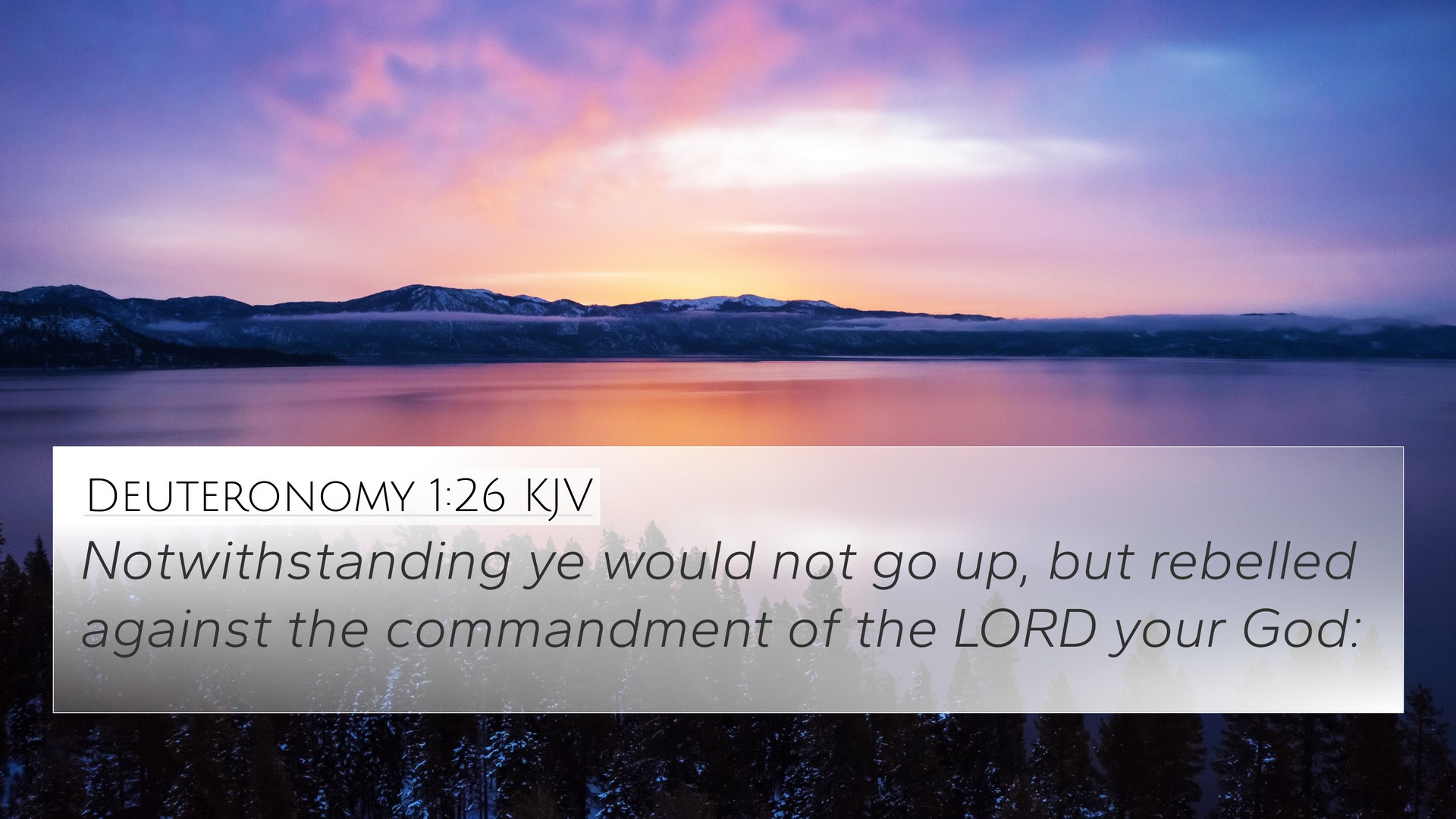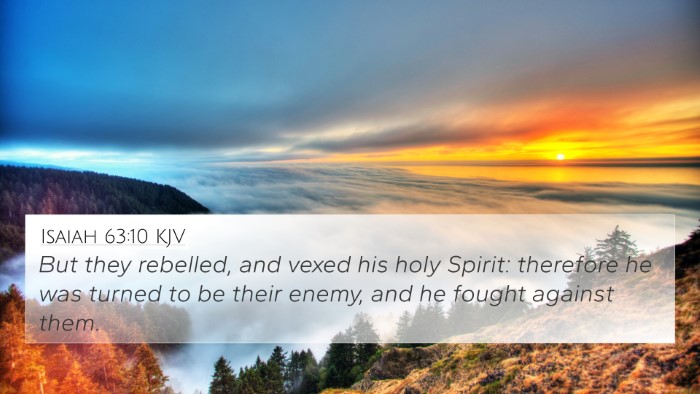Understanding Deuteronomy 1:26
Verse: “Notwithstanding ye would not go up, but rebelled against the commandment of the LORD your God:” (Deuteronomy 1:26)
Summary of Meaning
This verse reflects a pivotal moment in Israel’s history, where the people faced a crucial choice regarding obedience to God’s command to enter the Promised Land. Their refusal highlights a theme of rebellion against divine directives, illustrating distrust and disobedience in the face of God’s promise.
Insights from Commentaries
Matthew Henry: In his commentary, Henry emphasizes the gravity of Israel’s rebellion. He notes that their refusal to enter the land was a direct act of disobedience against God’s instructions, which had been clearly communicated through Moses. Henry suggests that this disobedience stemmed from fear and lack of faith, revealing a deeper issue within the hearts of the people.
Albert Barnes: Barnes elaborates on the idea of the people’s unwillingness. He mentions that their rebellion was not only against a command but also a denial of the blessings that God had prepared for them. He stresses that this reflects human nature's tendency to resist divine guidance, even when the promise is unmistakable.
Adam Clarke: Clarke provides insight into the consequences of this rebellion. He points out that their distrust not only affected their immediate situation but also had longstanding implications for their journey, leading to years of wandering in the wilderness. Clarke underscores that their actions serve as a warning against disobedience and the rejection of God’s will.
Bible Cross References
- Numbers 14:1-4: This passage recounts the negative response of the Israelites after hearing the report from the spies, showcasing their rebellion.
- Exodus 16:2-3: Reflects the pattern of Israel's grumbling and distrust in God’s provision.
- Psalm 95:8-11: A warning against hardening the heart as the Israelites did at Meribah, paralleling their rebellion.
- Hebrews 3:16-19: Discusses the disobedience of the Israelites in contrast to God's faithful promises.
- Deuteronomy 9:23: A reminder of their previous rebellion at Kadesh, reinforcing the seriousness of their actions.
- Romans 15:4: Highlights the importance of the Old Testament stories as examples and warnings for believers today.
- 1 Corinthians 10:5-11: Paul references Israel’s disobedience as a caution for the church, linking historical events to contemporary faith.
Connections Between Bible Verses
This verse serves as a key point for linking various themes throughout the Bible, especially concerning faith, obedience, and the consequences of rebellion. Understanding the connections and parallels between these scriptures can provide a deeper insight into God’s character and His dealings with humanity.
Thematic Bible Verse Connections
Deuteronomy 1:26 connects with themes of divine sovereignty, human disobedience, and the repercussions of failing to trust God. Other verses that reinforce these themes include:
- James 1:22: Encourages believers to be doers of the word, linking faith with action.
- Matthew 28:20: Jesus promises His presence; the connection here emphasizes trust in His guidance, as opposed to Israel's mistrust.
- Isaiah 43:2: Highlights God's protection and His assurance during times of overwhelming circumstances, contrasting Israel's fears.
Inter-Biblical Dialogue
The conversation between the Old and New Testaments about faith and obedience surrounds this verse. For instance, Hebrews includes reflections on the faithlessness of the Israelites as a cautionary note for believers, linking the historical rebellion directly to Christian obedience.
Conclusion
Deuteronomy 1:26 serves as an important reminder of the implications of our choices in light of divine command. The call to faith and obedience resonates throughout the Scriptures, urging believers to trust in God's promises and follow His path. By exploring comparative Bible verse analysis and cross-referencing Biblical texts, one can further appreciate the rich tapestry of God's message throughout the Bible.
Tools for Bible Cross-Referencing
For those looking to deepen their understanding of these connections, tools like a Bible concordance or a cross-reference bible study can be invaluable. These resources help identify links between passages and unveil a more comprehensive understanding of Scripture.






